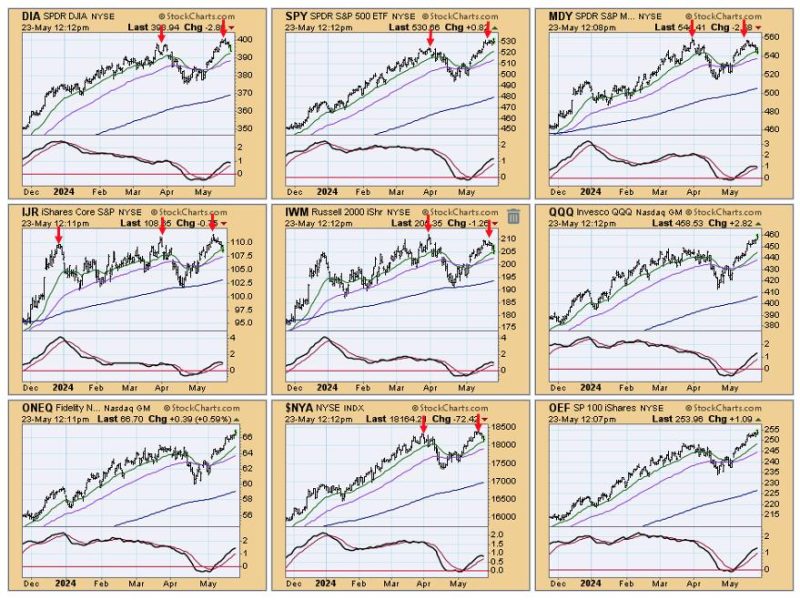In a recent analysis of the market by financial experts, including a detailed study of various economic indicators and trends, concerns have been raised regarding the current state of the market. The consensus among analysts is that the market appears to be toppy, indicating a potential downturn or correction in the near future.
One of the primary factors contributing to this sentiment is the overvaluation of many key stocks and indices. Despite a strong bull market in recent years, some stocks have seen their valuations soar to levels that are difficult to justify based on traditional metrics such as price-to-earnings ratios. This overvaluation has raised red flags for investors who are wary of a possible market bubble.
Additionally, economic indicators such as rising interest rates and inflationary pressures are also contributing to concerns about the market’s health. The Federal Reserve’s recent decisions to raise interest rates have sparked fears of a slowdown in economic growth, which could have a negative impact on stock prices. Furthermore, inflationary pressures, driven by factors such as supply chain disruptions and rising energy prices, are adding to the uncertainty surrounding the market.
Another key issue that is causing unease among investors is the ongoing geopolitical tensions and global economic uncertainties. Events such as trade disputes, political instability, and the lingering effects of the COVID-19 pandemic are all factors that could potentially unsettle the market and lead to increased volatility in the coming months.
In response to these concerns, many investors are starting to adopt a more cautious approach to their investment strategies. Some are reallocating their portfolios to include more defensive assets, such as bonds and gold, in order to mitigate potential risks associated with a market downturn. Others are actively seeking out undervalued stocks or sectors that may offer better growth opportunities in the face of a changing market environment.
While the prospect of a market correction may be unsettling for some investors, it is important to remember that volatility is a natural part of the market cycle. By staying informed, diversifying their portfolios, and adopting a long-term perspective, investors can better position themselves to weather any potential storms and take advantage of opportunities that may arise in a changing market landscape.
In conclusion, while the market may appear toppy at present, it is essential for investors to remain vigilant and adapt their strategies accordingly. By monitoring key indicators, staying informed about market developments, and being prepared for potential risks, investors can navigate uncertain times and make informed decisions that align with their financial goals.
